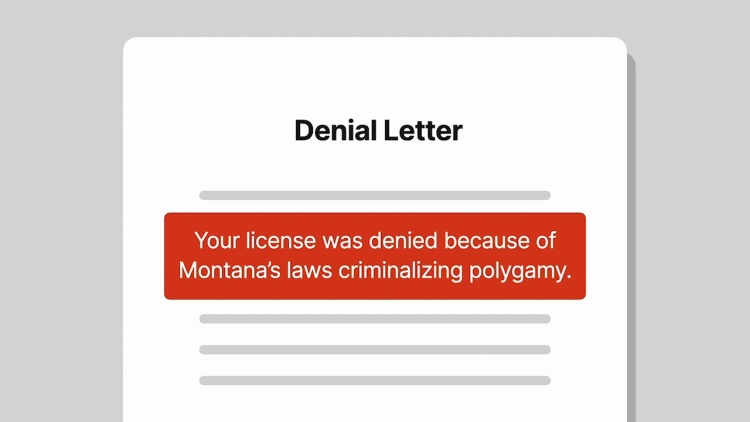Collier v. Fox
United States District Court for the District of Montana
2018 WL 1247411 (2018)
- Written by Abby Roughton, JD
Facts
Nathan and Vicki Collier (plaintiffs) had been married since 2000. Nathan was also in a committed relationship with Christine Collier (plaintiff) and wanted to marry Christine. Vicki and Christine knew about each other, and both Vicki and Christine consented to being married to Nathan simultaneously. In June 2015, Nathan and Christine applied for a marriage license in Yellowstone County, Montana. The application was denied, and the county attorney’s office sent a letter explaining that the marriage license could not be granted because it would violate Montana statutes criminalizing polygamy. The letter did not threaten Nathan and Christine with prosecution. Nathan, Vicki, and Christine (collectively, the Colliers) sued Montana Attorney General Tim Fox and other county and state officials (collectively, the officials) (defendants) in federal district court, arguing that Montana’s antipolygamy statutes were unconstitutional. Specifically, the Colliers raised a pre-enforcement challenge to state statutes that prohibited both knowingly committing bigamy and knowingly marrying a bigamist. The Colliers asserted that they were afraid of being prosecuted under the statutes, even though the state had never previously prosecuted anyone for bigamy. The Colliers also challenged a state civil statute prohibiting plural marriage. The officials responded that the United States Supreme Court’s 1878 decision in Reynolds v. United States had established the constitutionality of state antipolygamy statutes. The parties cross-moved for summary judgment, and the district court referred the matter to a federal magistrate judge to recommend how the court should decide the motions. The magistrate judge first found that Vicki did not have standing to challenge the laws because she was not trying to marry another person while married or to marry someone she knew to be committing bigamy, nor had she been denied a marriage license. The magistrate thus recommended granting summary judgment to the officials on Vicki’s claims. The magistrate then considered Nathan and Christine’s claims.
Rule of Law
Issue
Holding and Reasoning (Cavan, J.)
What to do next…
Here's why 907,000 law students have relied on our case briefs:
- Written by law professors and practitioners, not other law students. 47,100 briefs, keyed to 996 casebooks. Top-notch customer support.
- The right amount of information, includes the facts, issues, rule of law, holding and reasoning, and any concurrences and dissents.
- Access in your classes, works on your mobile and tablet. Massive library of related video lessons and high quality multiple-choice questions.
- Easy to use, uniform format for every case brief. Written in plain English, not in legalese. Our briefs summarize and simplify; they don’t just repeat the court’s language.







